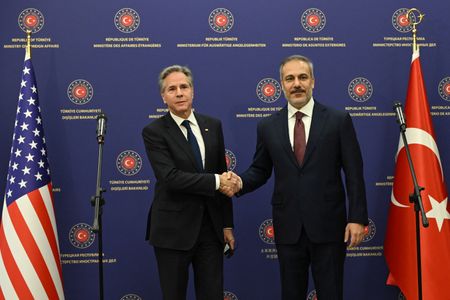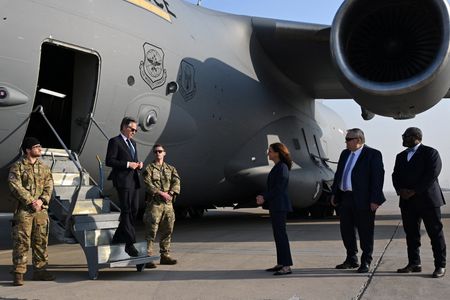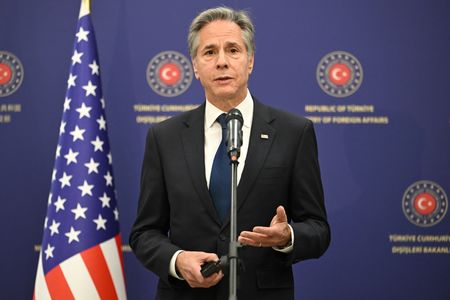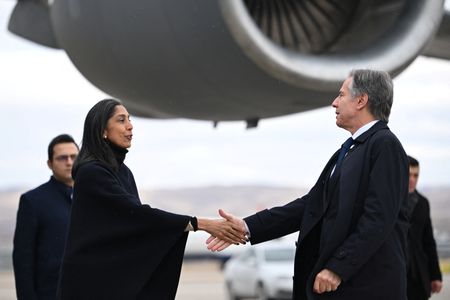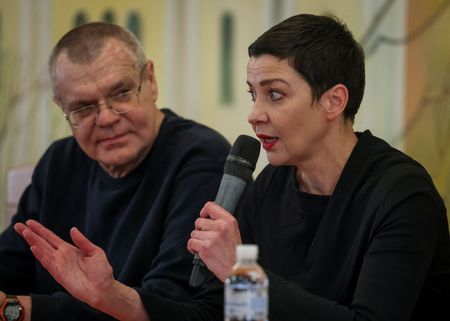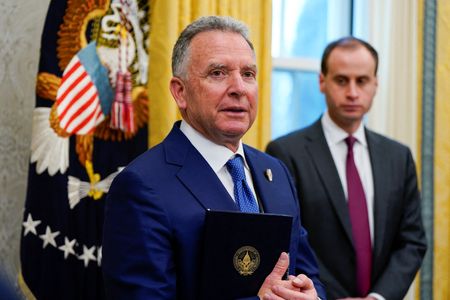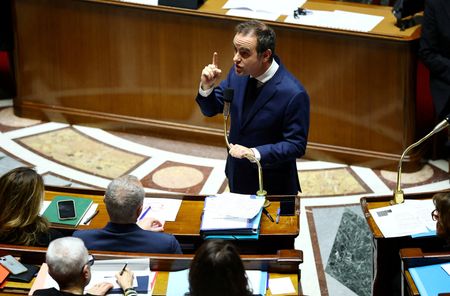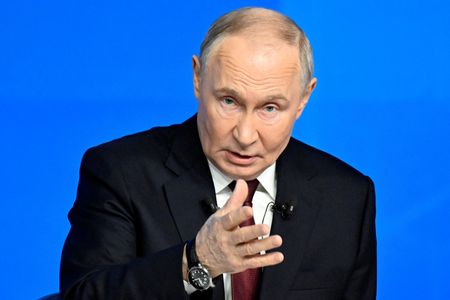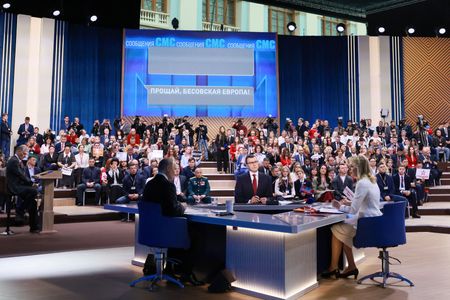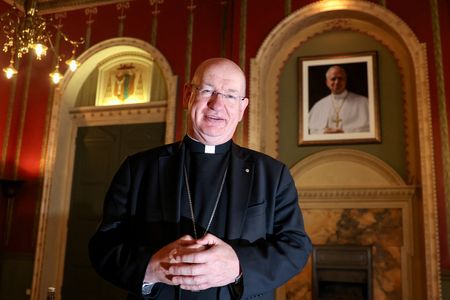By Simon Lewis and Huseyin Hayatsever
ANKARA (Reuters) -U.S. Secretary of State Antony Blinken and Turkish Foreign Minister Hakan Fidan agreed on Friday on the need for continued efforts to counter any resurgence of Islamic State in Syria following the fall of Bashar al-Assad.
Washington’s top diplomat also said that he discussed the imperative of Palestinian militant group Hamas saying “yes” to a Gaza ceasefire agreement in his talks with Turkey’s president and foreign minister.
A U.S. official said Hamas has softened its position in ceasefire talks.
Blinken is touring the Middle East to establish a united front with Arab and Turkish allies on the set of principles that Washington hopes will guide Syria’s political transition, such as inclusivity and respect for minorities.
He said on Monday that Islamic State would try to use this period to re-establish capabilities in Syria, but the United States was determined not to let that happen.
“Our countries worked very hard and gave a lot over many years to ensure the elimination of the territorial caliphate of ISIS, to ensure that threat doesn’t rear its head again, and it’s imperative that we keep at those efforts,” Blinken said alongside Fidan after they met in Ankara.
Talks also focused on a critical aspect of establishing stability in Syria – clashes in the north of the country between the U.S.-backed and Kurdish-led Syrian Democratic Forces (SDF) and Turkish-backed rebels.
The SDF is the main ally in a U.S. coalition against the Islamic State militants. It is spearheaded by YPG militia, a group that Ankara sees as an extension of Kurdistan Workers Party (PKK) militants that it outlaws and who have fought the Turkish state for 40 years.
NATO allies Washington and Ankara supported Syrian rebels during the 13-year civil war, but their interests clashed when it came to the SDF faction.
Turkish leaders agreed with Blinken that the SDF should not be distracted from its role of securing camps holding detained Islamic State fighters, and from fighting the remnants of that group, said the U.S.
official, who was speaking on the condition of anonymity and has knowledge of Blinken’s meetings with Turkish leaders.
Earlier this week, Turkish-backed forces seized the northern city of Manbij from the SDF, which then headed east of the Euphrates River.
A Syrian opposition source told Reuters the U.S. and Turkey had reached an agreement on the withdrawal.
Neither Blinken nor Fidan made any reference to the agreement, but the U.S. official traveling with Blinken said it was a focus of the talks.
The official said the ceasefire had generally held, but settling the broader tensions between Kurds in Syria and Turkey would take more time, adding that Washington was closely watching any moves by Turkey or Turkish-backed forces on the Kurdish-controlled town of Kobani.
After meeting with Blinken, Fidan said Turkey’s “priority in Syria is to ensure stability…as soon as possible, to prevent terrorism from gaining ground and to prevent Islamic State and the PKK from dominating there”.
“We discussed in detail what we can do about these, what our common concerns are, and what our common solutions should be,” he said.
In an interview with Turkish-broadcaster NTV late on Friday, Fidan said the elimination of YPG was Turkey’s “strategic target” and urged the group’s commanders to leave Syria.
He also criticized the West, saying it was using the PKK to secure the detention camps holding Islamic State fighters and that the PKK was “blackmailing” the international community through this role.
GAZA CEASEFIRE
Blinken also pressed the importance of a ceasefire to end hostilities between Palestinian militants Hamas and Israel in Gaza during his meetings in Turkey, as Washington makes a fresh push to clinch a deal that has eluded President Joe Biden’s administration for over a year.
“In my discussions with President Erdogan and with Minister Fidan we talked about the imperative of Hamas saying yes to the (Gaza) agreement that’s possible to finally help bring this to an end,” Blinken said following his meeting with Fidan.
“We appreciate very much the role that Turkey can play in using its voice with Hamas, to try to bring this to conclusion.”
Hamas has softened its position in ceasefire talks and Turkey has begun employing its leverage over the group since many Hamas leaders moved to Istanbul from Doha, the U.S.
official said.
(Reporting by Simon Lewis; Additional reporting by Humeyra Pamuk and Daphne Psaledakis; Editing by Jonathan Spicer, Angus MacSwan and Rosalba O’Brien)

